NAD+ Peptides for Anti-aging 1000mg 10 vials
Original price was: $500.00.$180.00Current price is: $180.00.
NAD+ Peptides for Anti-aging
1000mg * 10 vials* 1 Kits
100% delivery
- Satisfaction Guaranteed
- No Hassle Refunds
- Secure Payments
Description
What is NAD+?
Nicotinamide adenine dinucleotide (NAD+) is a helper molecule that exists inside each of your cells and
supports many aspects of healthy aging. However, the amount of NAD+ in your body naturally falls with age. Low
NAD+ levels have been linked to health concerns like aging and chronic illnesses, such as diabetes, heart disease,
Alzheimer’s disease and vision loss. Interestingly, animal research has found that raising NAD+ levels may help reverse signs of aging and lower the risk of many chronic diseases.
Mechanisms of Action
NAD+ plays a central role in cellular energy metabolism and is required for the proper function of mitochondria. In its oxidized (NAD+) and reduced (NADH) forms, this coenzyme cycles between metabolic reactions, accepting and donating electrons during nutrient breakdown and ATP generation. Each stage of respiration, from glycolysis in the cytoplasm to the citric acid cycle and oxidative phosphorylation in mitochondria, depends on NAD+/NADH to carry reducing equivalents, thereby driving the production of cellular energy. By supplying additional NAD+ to the body, NAD+ Injection may help ensure these energy-producing pathways can proceed optimally, particularly in situations of NAD+ depletion. In addition, NAD+ serves as a substrate for numerous enzyme systems that regulate cell function. For example, NAD+-dependent enzymes include the sirtuins (SIRT1-7), a family of protein deacetylases involved in gene expression, stress responses, and metabolic regulation, as well as poly(ADP-ribose) polymerases (PARPs) that assist in DNA repair. Sufficient NAD+ availability is necessary for these enzymes to operate, so raising NAD+ levels could in theory modulate pathways related to aging, inflammation, and cell survival.
While the precise mechanisms of action for NAD+ therapy’s purported benefits are not fully elucidated, multiple lines of research suggest several contributing effects. NAD+ augmentation may counteract age-related NAD+ loss caused by overactive NAD-consuming enzymes (such as the NADase CD38), thereby supporting mitochondrial maintenance and metabolic homeostasis. Laboratory studies in cell and animal models of accelerated aging have shown that replenishing NAD+ can restore mitochondrial function and stimulate beneficial cellular recycling processes like mitophagy. It is postulated that through these mechanisms, NAD+ repletion might improve cellular energy capacity and resistance to oxidative stress. However, in human systems the outcome of boosting NAD+ is complex and likely involves numerous pathways, from enhanced activity of sirtuins (implicated in longevity and metabolic control) to improved DNA damage repair, all of which are areas of ongoing investigation. In summary, NAD+ Injection provides additional coenzyme substrate that may broadly support the cell’s energy-producing and regulatory enzymes, but its exact biological effects in people remain an area of active research and may vary depending on individual physiology.
Benefits of NAD+
Early research shows that NAD+ supplementation may have various health benefits, though additional larger human clinical trials are needed to draw more conclusive evidence.
Studies also suggest that NAD+ levels may be raised in the body by taking what experts call NAD+ vitamin “precursors” or “boosters.” Two forms of vitamin B3 (or niacin) serve this purpose: nicotinamide mononucleotide(NMN) and nicotinamide riboside (NR).
May Slow Certain Effects of Aging
NAD+ levels naturally decline with age, so NAD+ supplementation has been studied for its role in potentially preventing or reversing age-related health conditions.
Older animal studies have found that NAD+ helped prolong the number of years that subjects were in good health and reduced signs of premature aging. Now, the focus is on human clinical trials, where researchers have initially observed that supplementation of NAD+ precursors (such as NMN and NR) may improve signs of aging, including:
Cardiovascular health and other physical signs of aging in middle-aged and older adults
Aging skeletal muscle and anti-inflammatory effects, potentially helping to prevent a loss of muscle function, strength, and mass
Mitochondrial function (or the cellular energy process) in people with heart failure
While these findings suggest that NAD+ supplements could effectively promote anti-aging effects, broader clinical trials are needed before NAD+ supplements can be specifically recommended for this purpose.
Appears To Improve Cognitive Function
Due to its potential link to anti-aging, experts suggest that NAD+ supplementation might reduce nerve cell inflammation, which can contribute to age-related cognitive disorders like Parkinson’s disease.
Early studies suggested that people with Parkinson’s may be living with a NAD+ deficiency.1011 Then, a 2023 early-stage clinical trial found that a high dose of a NAD precursor (1500 milligrams of NR twice a day) improved NAD+ levels and certain Parkinson’s symptoms.
In addition, Alzheimer’s disease-related dementia seemed to respond positively to daily NAD+ supplementation in at least one study. However, much more research is needed in this area to confirm if there is a connection.
Could Reduce Premature Skin Aging
Another area where NAD+ supplementation may be beneficial is skin health.
NAD+’s anti-aging effects may help your body repair DNA. This could potentially help repair UV-damaged skin and prevent premature skin aging. Additionally, applying NAD topically has been shown to benefit skin conditions like psoriasis (which causes skin cells to multiply too quickly, causing a build-up of skin cells) by slowing down skin cell multiplication.
NAD+ supplementation’s potential skin regenerative abilities need to be studied further before these treatments can be targeted to specific groups of people.
Potentially Supports Metabolic Health
Metabolic health—which describes your body’s ability to regulate blood sugar, insulin, cholesterol levels, and more —could be improved by NAD+ in some ways.
Research shows that increased levels of NAD+ in the body seem to support health conditions like obesity and metabolic syndrome. These conditions can increase your risk of developing heart disease, stroke, and type 2 diabetes.
A small 2021 study of postmenopausal people with prediabetes who had excess weight or obesity found that taking 250 milligrams (mg) of NAD+ per day for 10 weeks improved insulin sensitivity. Other studies have found improvements in body composition, lipid levels, exercise capacity, and muscle composition with NAD+ supplementation.
Because these findings are relatively new, additional studies are needed to better understand this connection.
Potential Side Effects and Precautions For NAD+
Common Side Effects
1. Injection Site Reactions:
Redness, swelling, or tenderness at the injection site.
Rarely, bruising or irritation.
2. Nausea:
A frequent side effect, particularly with higher doses or rapid administration.
Slower infusion rates can often mitigate this.
3. Flushing or Warmth:
Some individuals experience a sensation of warmth or flushing during the injection.
4. Fatigue:
Paradoxically, some people feel fatigue or drowsiness shortly after administration.
This effect is typically transient.
5. Headaches:
Likely due to vasodilation or rapid metabolic shifts.
Slower injection rates can reduce the risk.
6. Lightheadedness or Dizziness:
May occur, especially if administered too quickly or in individuals prone to low blood pressure.
7. Digestive Disturbances:
Nausea can sometimes lead to vomiting.
Less commonly, diarrhea or abdominal discomfort.
Rare Side Effects
1. Palpitations or Irregular Heartbeat:
Rapid or irregular heartbeat has been reported in a few cases.
May be related to changes in mitochondrial energy output.
2. Anxiety or Restlessness:
Some individuals report transient feelings of anxiety or restlessness during the infusion.
3. Muscle Cramps or Stiffness:
Rare cases of muscle discomfort, possibly linked to electrolyte imbalances.
4. Drop in Blood Pressure (Hypotension):
Rapid administration can lead to temporary decreases in blood pressure.
Symptoms include dizziness, fainting, or a feeling of weakness.
5. Chest Pressure
Dosage For NAD+
NAD+ Injection is supplied by compounding pharmacies as a lyophilized (freeze-dried) sterile powder, typically in vials containing 500 mg or 1,000 mg of NAD+ per vial.
The powder is reconstituted with sterile diluent (such as bacteriostatic water) before use to yield an injectable solution. Dosing regimens are individualized, as there is no one-size-fits-all dosage for NAD+ therapy.
For general wellness or anti-aging purposes, providers often start with relatively low doses and adjust based on patient response. A common protocol, for example, is to begin with about 20 mg of NAD+ administered subcutaneously and gradually increase the dose over subsequent injections up to around 100 mg per injection. These injections may be given a few times per week; a usual schedule is 1 to 3 times weekly, depending on how well the patient tolerates NAD+ and the goals of therapy.
By ramping up the dosage slowly, patients can often avoid side effects like headache or nausea while still obtaining the energizing or cognitive benefits of NAD+. A maintenance plan might involve ongoing injections of 50-100 mg weekly or as directed by the prescribing provider. Importantly, NAD+ injections can be administered either in a clinic or self-administered at home if the patient has been properly instructed; the subcutaneous shots are given into the fatty tissue (for instance, the back of the arm or the abdomen) using a small insulin-type syringe for convenience.
In clinical research settings and certain intensive protocols (such as addiction detoxification), much higher NAD+ dosages have been utilized.
For example, one early protocol for substance uses disorders employed 500-1,000 mg of NAD+ per day delivered by slow intravenous infusion over several consecutive days. In that setting, patients received high-dose NAD+ daily for about 4-10 days to alleviate acute withdrawal symptoms, followed by tapering to less frequent booster injections over the ensuing weeks. Such large doses are administered under direct medical supervision and via IV drip to ensure safety. Outside of specialized cases, most wellness protocols do not use daily high-dose NAD+; instead, they favor moderate doses spread out over time.
Ultimately, the dosage and frequency of NAD+ Injection must be tailored to the individual’s needs, tolerability, and treatment objectives. A healthcare provider will determine the appropriate starting dose and titration schedule for each patient. They will also set an upper limit on the total weekly dose (for example, some experts recommend not exceeding ~300 mg per week in subcutaneous dosing without further evaluation) to minimize any risk of adverse effects.
As with any compounded therapy, ongoing monitoring is part of dosage management; the provider may adjust the dose based on the patient’s energy levels, symptom improvements, or any side effects. Through this personalized approach, NAD+ Injection dosing can range from small booster doses to larger infusions, but always under professional guidance to ensure it remains safe and effective for the patient’s condition.
Storing For NAD+:
Store unopened/unreconstituted vials in a controlled room temperature environment as per manufacturer recommendations. Do not freeze.
Once reconstituted, store vials in the refrigerator at 36°F to 46°F (2°C to 8°C).
Note that the contents of a vial expire 30 days after opening. Discard expired vials and contact the supervisor for further instructions.
Summary
NAD+ is essential for regulating metabolism and circadian rhythm. As we age, levels of NAD+ decline. Reduced levels of NAD+ are associated with conditions like mental decline, diabetes, and heart disease. Niacin, niacinamide, NMN, and NR can all boost levels of NAD+ in the body.
In theory, these supplements could slow the effects of aging and combat diseases, but more research is needed. Without strong clinical trials in humans, informed decisions cannot be made about the risks versus benefits of various NAD+ supplements. Always speak with a healthcare provider before taking a supplement to ensure that the supplement and dosage are appropriate for your individual needs.
You must be logged in to post a review.
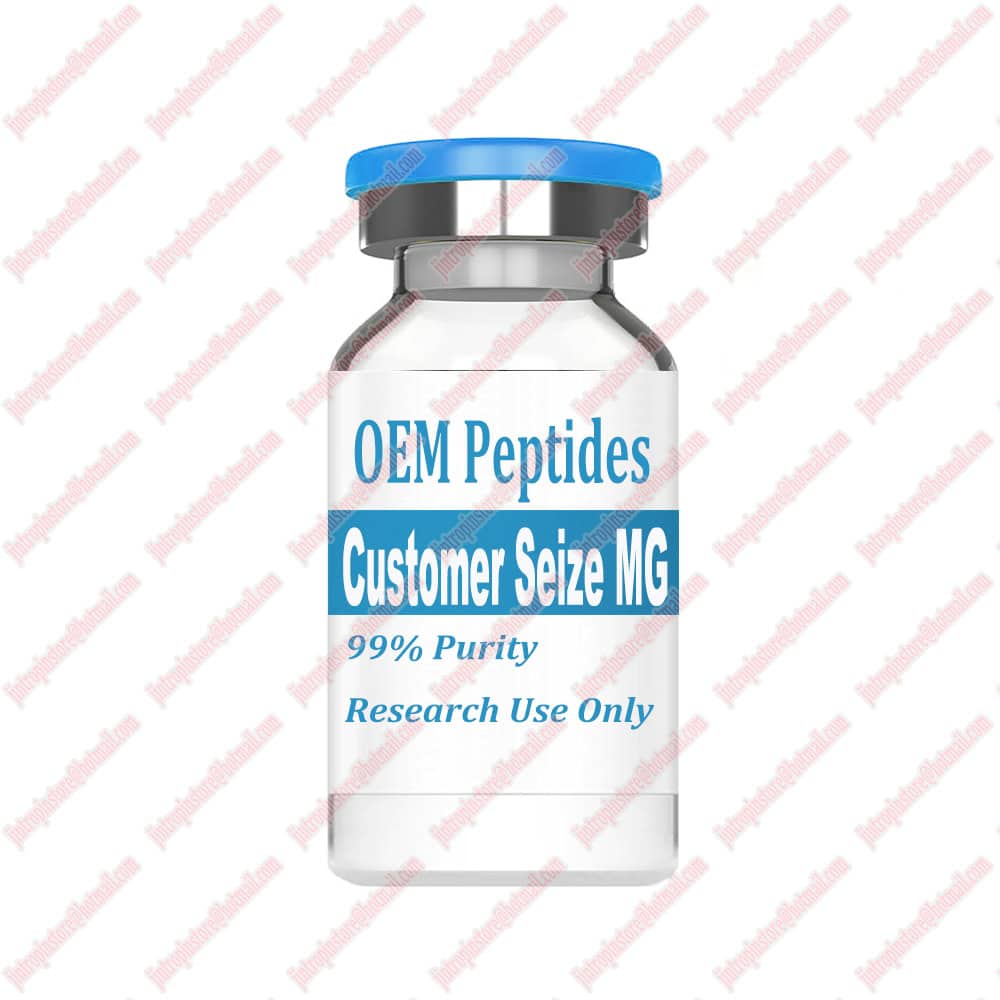
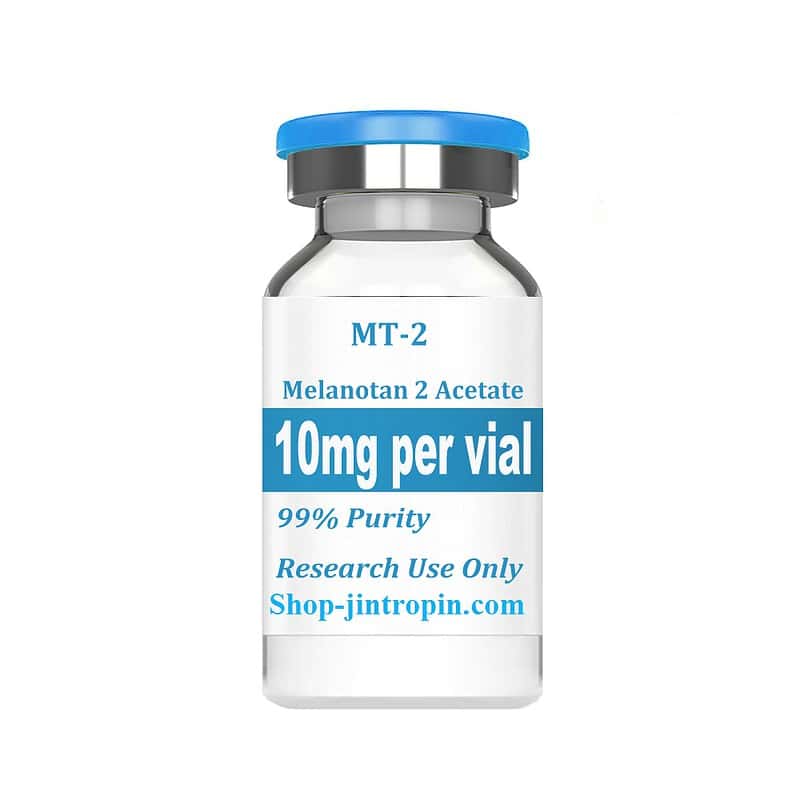
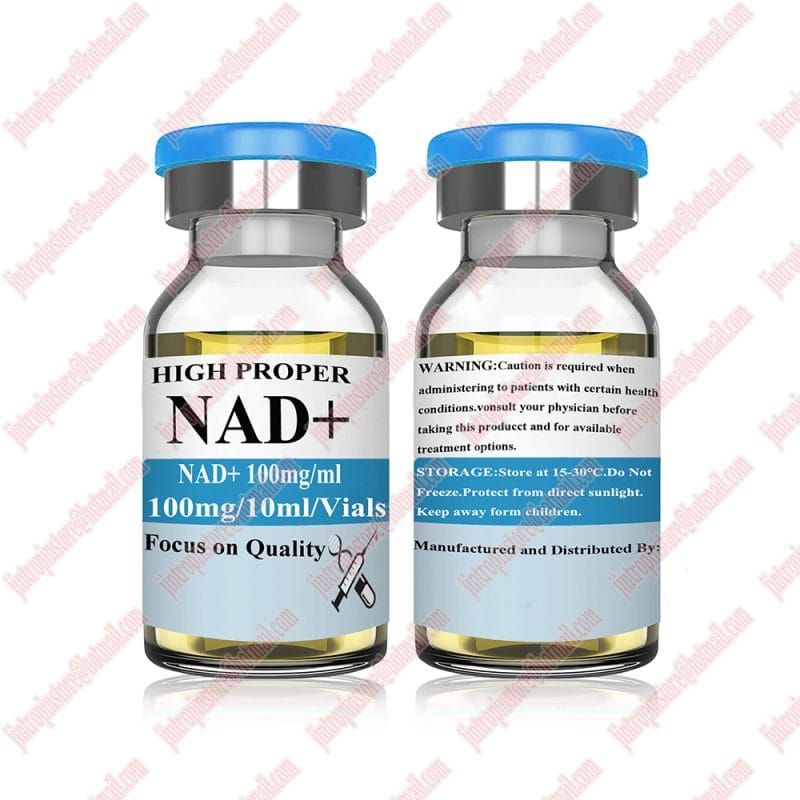
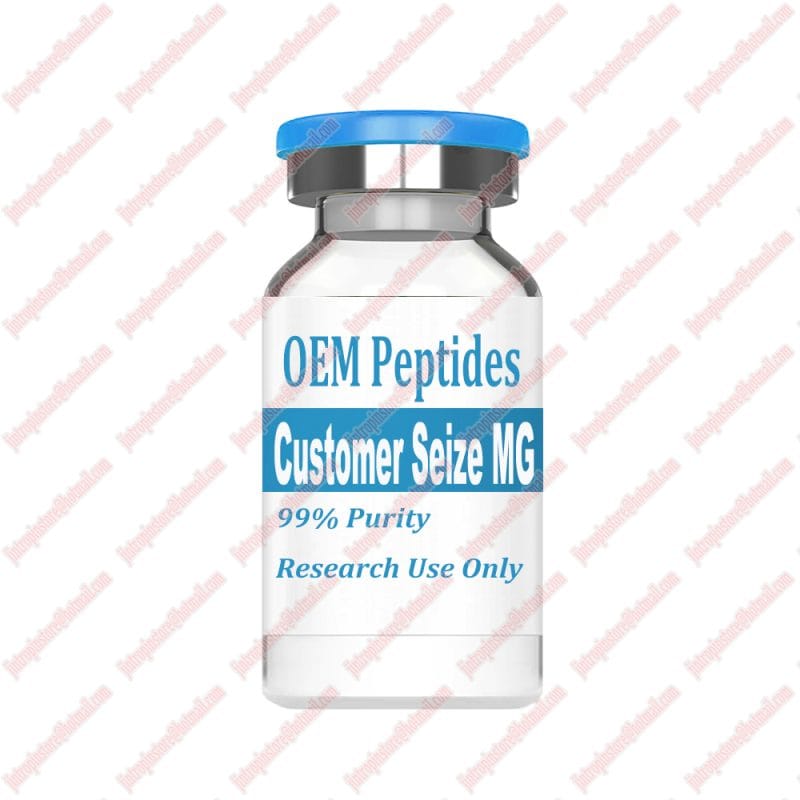
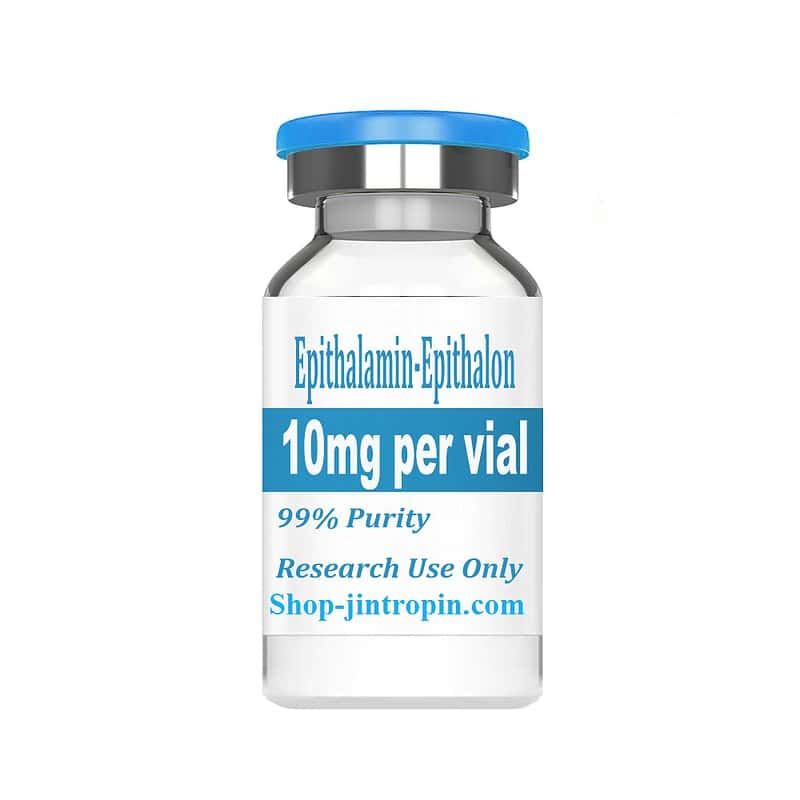
Reviews
There are no reviews yet.